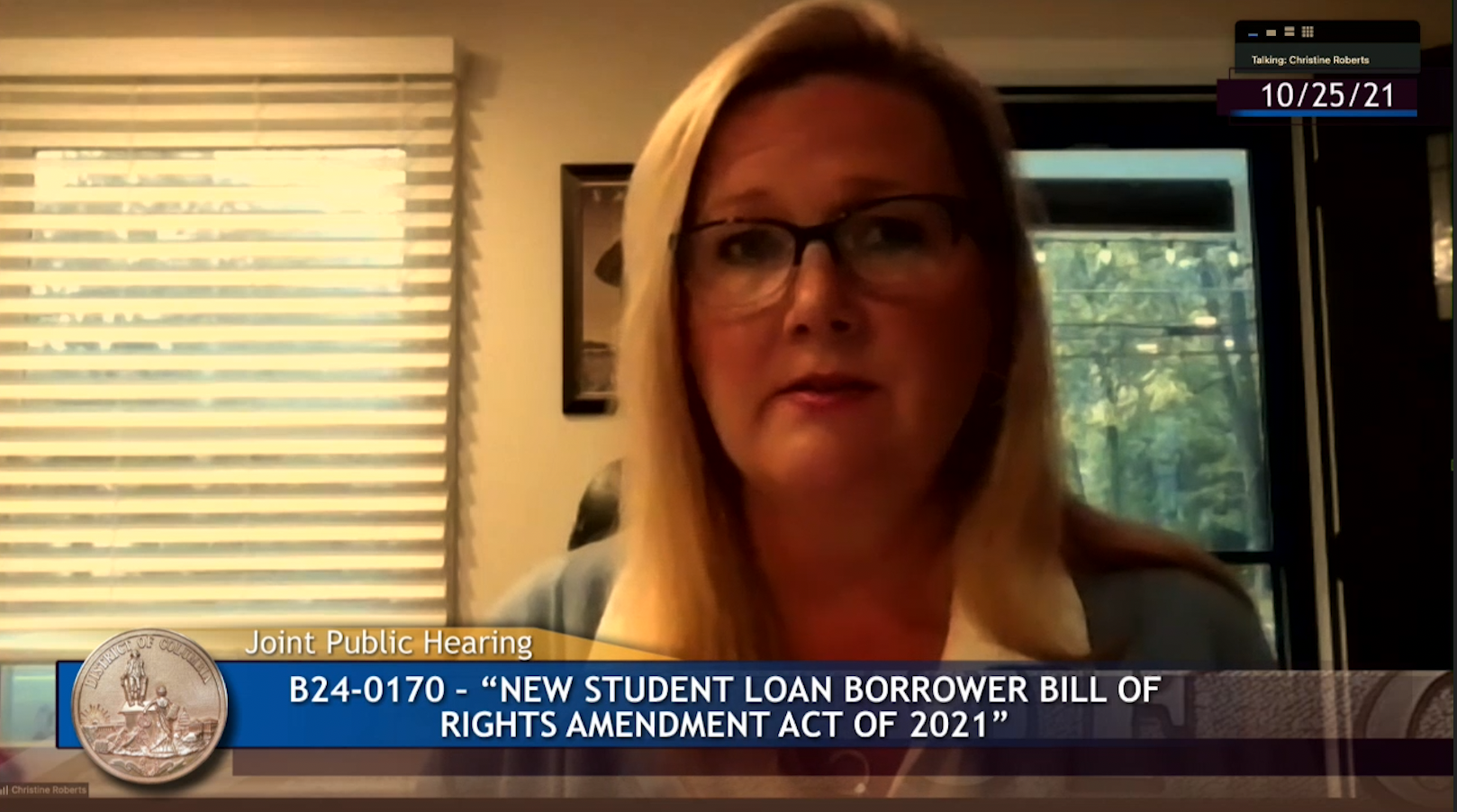CBA Comment Letter for Record on HFSC OI Hearing on Student Loan Servicing

Dear Chairman Green and Ranking Member Barr:
On behalf of the Consumer Bankers Association (CBA), I would like to share our views about the student loan market and recommendations for improving outcomes for student loan borrowers as the Subcommittee on Oversight and Investigations holds the hearing entitled “An Examination of State Efforts to Oversee the $1.5 Trillion Student Loan Servicing Market.” CBA serves as the voice of the retail banking industry and its membership includes private sector lenders who make the majority of private student loans to help families finance a postsecondary education.
The State of Student Loan Debt
Student loan debt in America currently totals $1.56 trillion. The federal government dominates the market with $1.44 trillion in loans. The remaining $119 billion is held by private lenders, including members of the CBA. By working with borrowers to ensure an ability to repay and clear understanding of loan terms, private lenders are setting up borrowers for success. In fact, 98 percent of private student loan borrowers are successfully repaying their loans. Unfortunately, there is a federal student loan crisis with one in five federal student loan borrowers seriously delinquent or in default and many experiencing growing loan balances post-graduation.
Know Before You Owe Federal Student Loans
Over the years, policymakers have offered multiple solutions to help borrowers with repayment. But this approach fails to address the root causes of our nation’s federal student loan debt problem – the cost of college and federal over-lending. Rather than focusing exclusively on how to help borrowers after they are already heavily in debt, policymakers should hold colleges accountable for their student outcomes and create sensible safeguards to ensure sound financial decisions are made before students and parents take out federal loans.
Access to information about the true cost of a federal student loan is critical to making an informed decision about how much, if any, debt to take out to finance a postsecondary credential. Unfortunately, federal student loan borrowers must weed through more than a dozen pages of disclosures and squint to read fine print to unearth key loan terms. The federal loan disclosures, provided at disbursement, fail to provide terms specific to individual borrowers. Instead, they give broad categories of interest rates, fees, and estimated monthly payments, and they lack information on the total cost of the loans.
Federal student loan disclosures should be streamlined and improved by bringing them in line with the TILA disclosures required of private lenders. Key terms such as interest rate, fees, monthly payment, total cost of the loan, and annual percentage rate should be stated clearly and concisely in order to improve transparency and help prevent over-borrowing.
CBA encourages members of the Subcommittee to support H.R. 1161, the Student Loan Disclosure Modernization Act, introduced by Representatives Emanuel Cleaver (D-MO) and Jim Banks (R-IN), which makes some of these needed improvements. The bill would improve the Department of Education’s inappropriately named Plain Language Disclosure by clearly explaining the costs and terms of federal student loans to help borrowers better understand their loan commitments and increase their prospects of successfully repaying.
Student Loan Servicing
While we strongly encourage policymakers to address the cost of college and federal over-lending, we recognize the desire by federal and state legislators to want to help those currently struggling with student loan debt. Recently, several states have implemented or are considering laws to place new requirements on student loan servicers. While the focus of these laws has been on the federal contractors of the Direct Loan program, banks are sometimes affected despite the strong performance of their private loan borrowers (as stated earlier, 98% of private loans borrowers are successfully repaying their loans). Moreover, these laws have often conflicted with federal regulatory requirements related to safety and soundness as well as supervisory oversight for CBA’s federally regulated members. As a result, these laws could make it difficult for banks to serve some students, thereby reducing consumer choice and credit availability.
We urge the Subcommittee to take note of these factors and oppose state-level actions that reduce the ability of federal agencies to oversee financial institutions and create an intersecting web of conflicting state provisions. For example, legislation under consideration in California would put state officials in the position of exercising “visitorial powers” over national banks in violation of federal law. Several states are considering similar legislation. Likewise, some states are considering imposing student loan servicing data reporting that would be duplicative of the private sector’s voluntary reporting and would offer few benefits while creating major unnecessary costs for our members. Multiple, conflicting and duplicative requirements that national banks submit state-level reports, or produce proprietary business data or records, would violate national bank “visitorial authority” preemption principles.
CBA members fully support policies to ensure financial institutions operate in a safe manner and treat their customers honestly and fairly. In fact, national banks are regularly examined and regulated by prudential regulators to ensure safety and soundness as well as by the Consumer Financial Protection Bureau (CFPB) for compliance with consumer protection laws. However, a checkerboard of conflicting and unworkable state rules has the potential to confuse consumers and make it difficult for lenders to offer low-cost private student loans.
Thank you for your consideration of our views. CBA welcomes the opportunity to work with the Subcommittee to improve student loan borrower outcomes.
Sincerely,
Richard Hunt
President and CEO
Consumer Bankers Association



